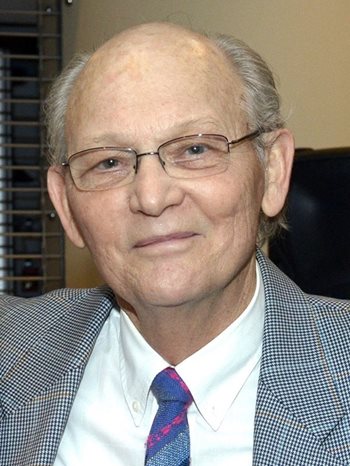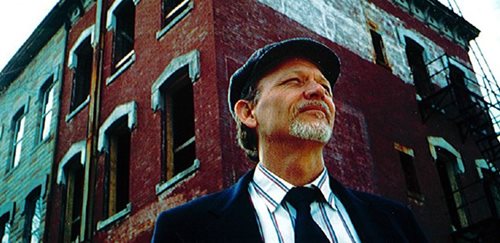In the early 1980s Pastor Jim Dickerson was working with a group of volunteers to help families realize their dreams for a better life. Always key to their dreams was stable, affordable, quality housing.
 Dickerson and his friends began to buy homes, still cheap in a Washington, D.C., that hadn't yet recovered from disinvestment and the upheaval and destruction following Rev. Dr. Martin Luther King, Jr.'s assassination. Dickerson and the volunteers would restore the homes and rent them out at reduced rates. One day, a family told him, "We want to own something."
Dickerson and his friends began to buy homes, still cheap in a Washington, D.C., that hadn't yet recovered from disinvestment and the upheaval and destruction following Rev. Dr. Martin Luther King, Jr.'s assassination. Dickerson and the volunteers would restore the homes and rent them out at reduced rates. One day, a family told him, "We want to own something."
So Dickerson's group bought a house, fixed it up, and sold it to a family who still lives there today. It was December, right around Christmastime, when they moved in. The Washington Post wrote about it in their real estate section, an uplifting holiday story about a family coming out of poverty and moving into their own home. The response, Dickerson says, was tremendous. "I got 300 calls the next day from people wanting this opportunity. Out of that, we bought another couple of homes and fixed them up. We sold them to low-income homeowners."
Lenders still practiced redlining, and there were few loans available to families in that income category. Dickerson worked to find alternative ways of financing to help families purchase homes. "And that's how it started," he says. "My wife and I put up our house as a guarantee to get people to loan money for these projects. I got a friend to make a personal loan to that first family. We cobbled together what was available. We had a dream that it would change people's lives. And by the grace of God, what seemed humanly impossible became possible."
What they didn't think about, Dickerson says, was the neighborhood. "That came later," he says. "It started with families who wanted to keep moving forward and affordable housing and owning a home was the key to doing it."
Dickerson wanted to keep moving forward, too. He founded Manna, Inc. in 1982, and for nearly 40 years, he worked as CEO of the NeighborWorks network organization. He's retiring from the CEO post, but he wants to make one thing clear: he isn't done yet. Dickerson is going to remain an active board member. "I've still got a lot of juice," he says. "I'm not done and there's a lot to do."
His hope is that the new leadership (Sasha-Gaye Angus recently took the president and CEO position) will take the organization farther than he and his generation took it. "We will learn from our mistakes and we'll learn from our successes," he says. "I'm excited about the future and about Manna's new leader."
"Rev. Jim," as they call him, says he got into the housing business because of the wonderful people who wanted and needed housing and because God called him to it through them. "Folks were working to change their lives and their communities and good, quality, affordable housing was right at the top of the list of importance for them," he says.
He shared some of his lessons from his time as CEO:
- Neighborhoods are key: "When we finished our 100th home and sold it, we got a graduate intern from the University of Texas who did a paper on all our buyers, what they felt about their homes. Out of that study came the message loud and clear: The families loved their homes, but they were having a tough time with the problems of their neighborhoods. That was one of the early turning points. We realized we had to focus on neighborhoods, too, not just one house at a time, one building at a time. We enlarged our vision. We began organizing neighbors, working with schools, law enforcement. It can't be just individuals; it has to be the whole neighborhood."
- Advocacy is part of development: "We realized we had to do advocacy and work on policy and had to be at the table collectively and politically on the local level, where decisions are made, policies are set, and resources allocated that effect, for good or for ill, the lives of our constituents. We had to partner with other organizations. We realized nonprofits shouldn't compete against each other but work for our common good and the whole community."
- Education makes a difference: "When we first started selling to people who had never owned homes before – nor had anyone in their families -- we realized they didn't have the concept of what homeownership was and what it entailed. There had to be homeownership training and financial literacy."
- Providing opportunities creates change: "I'm happy and grateful for the last 40 years. I'm happy and grateful that we created over 2,000 homes going to first-time homeowners, helping families get access to over $200 million of home equity, which can be used to send their kid to college or start a business, etc. I'm most proud that we, together, have dispelled the lie many of our buyers have been taught: that they cannot do this, that they are locked into the narrative that they don't have the ability and capability to do this. We've proven that is not true and with the right resources and supports, they can. They have the ability. I'm very happy and grateful to God that together we've proven this can work and it does work – to the benefit of everyone. These families, given the right opportunities, can not only change their lives but change history, too."

